bool与引用类型
bool与引用类型
bool类型
介绍与使用
bool(布尔类型)
大小:1个字节
返回值有两个:1(true),0(false)
#include<iostream>using namespace std;int main()
{bool a = false;bool b = true;cout << "a = " << a << endl;cout << "b = " << b << endl;system("pause");return 0;
}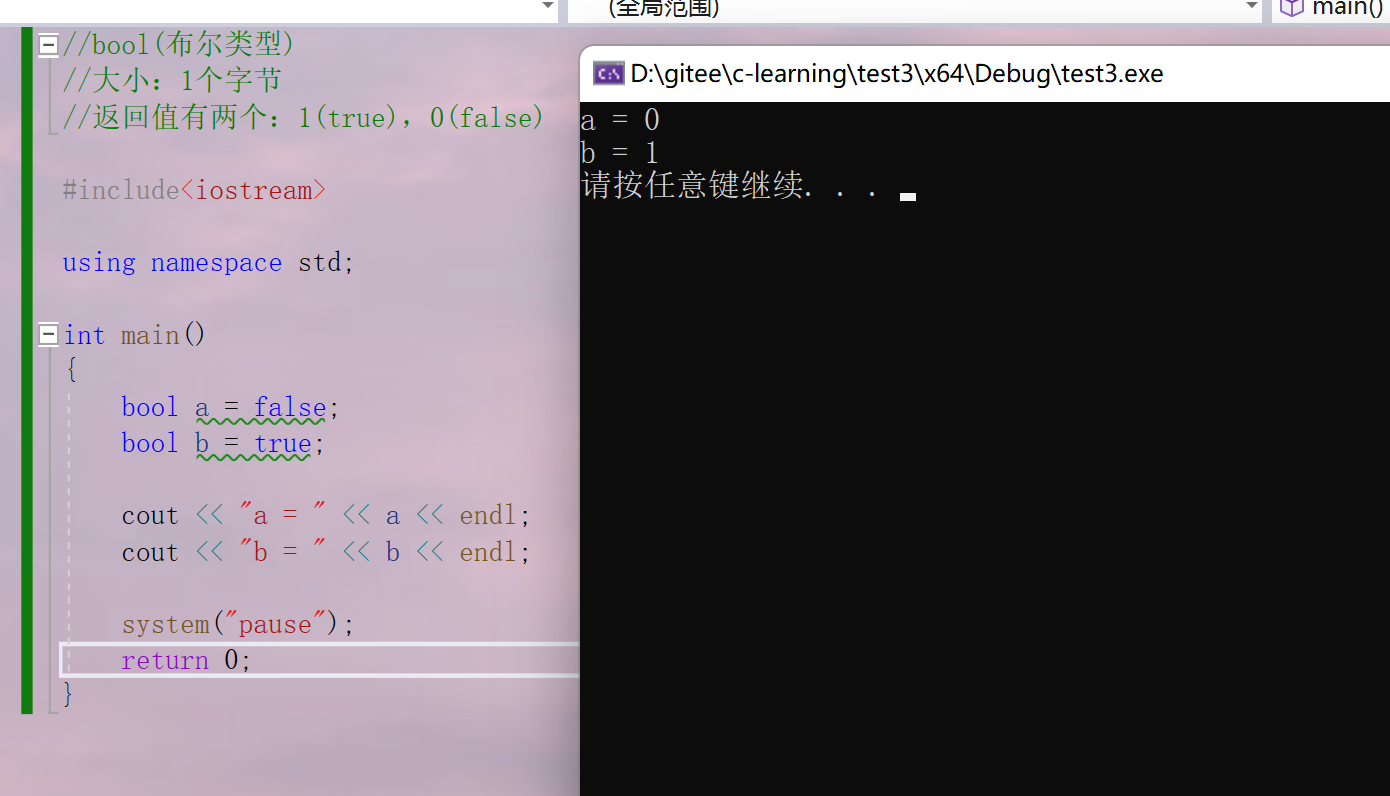
bool类型的用途
1.作某功能的开关
2.做标记 -->查找类的操作
3.做函数返回值
引用类型
可以当做一个起别名的用法
#include<iostream>using namespace std;int main()
{int a = 1;int& b = a; //起别名,a 的别名为 b,//就跟一个人的小名一样,a 的小名是b, a就是bsystem("pause");return 0;
}左值引用
当作函数参数,直接修改实参,防止拷贝木的产生
#include<iostream>using namespace std;void swap(int& a, int& b) //当作函数参数,直接修改实参
{int c = a;a = b;b = c;
}int main()
{int a = 10;int b = 11;swap(a, b);cout << "a = " << a << endl << "b = " << b << endl;system("pause");return 0;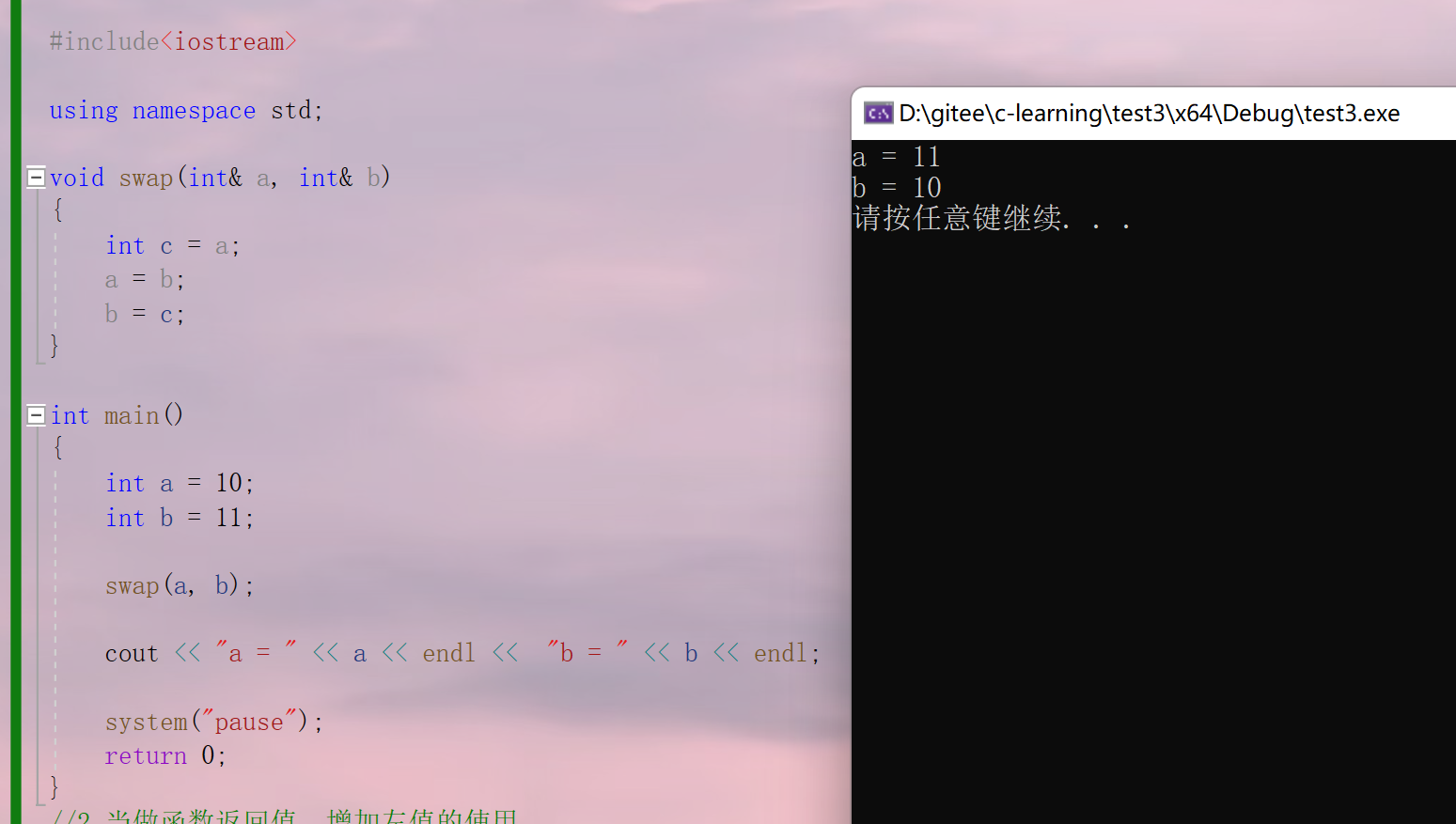
2.当做函数返回值,增加左值的使用
#include<iostream>using namespace std;int a = 1;
int b = 1;int& mm()
{return a;
}int MM()
{return b;}int main()
{mm() = 2; //正确通过左值引用,可以进行修改MM() = 4; //错误,不能对左值进行修改system("pause");return 0;
}右值引用
给右边的取别名
给常量起别名
1.用const 给常量起别名
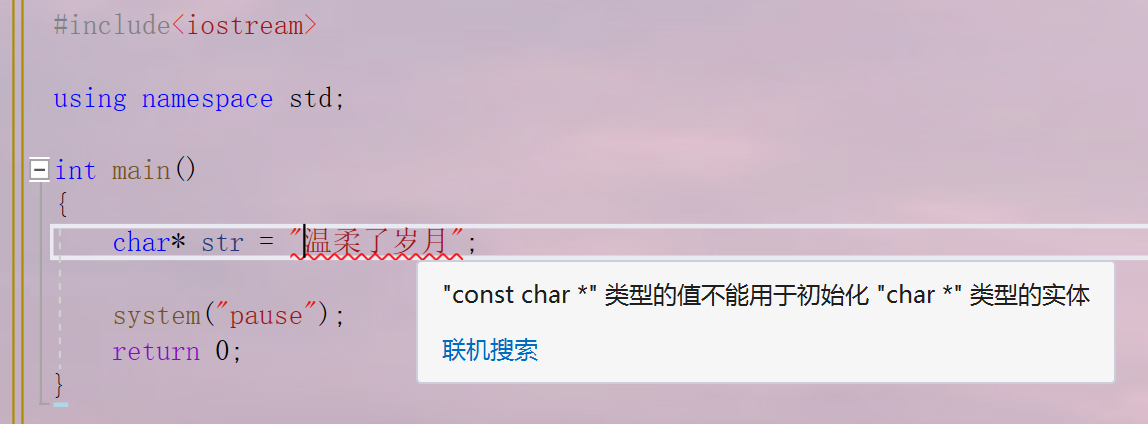
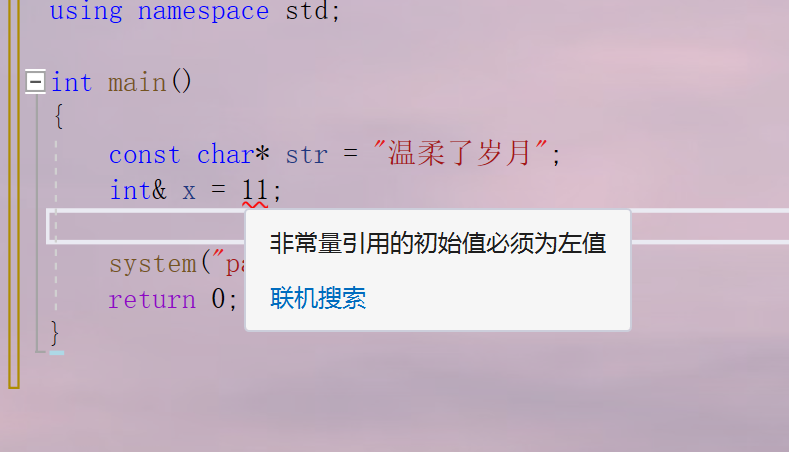
#include<iostream>using namespace std;int main()
{const char* str = "温柔了岁月";const int& x = 11;system("pause");return 0;
}
但用const有一个局限性,那就是不能进行修改
2.所以一般采用第二种方法,右值引用来解决(&&)
#include<iostream>using namespace std;int main()
{const char* str = "温柔了岁月";const int& x = 11;int&& a = 11; //右值引用a = 22; //修改值system("pause");return 0;
}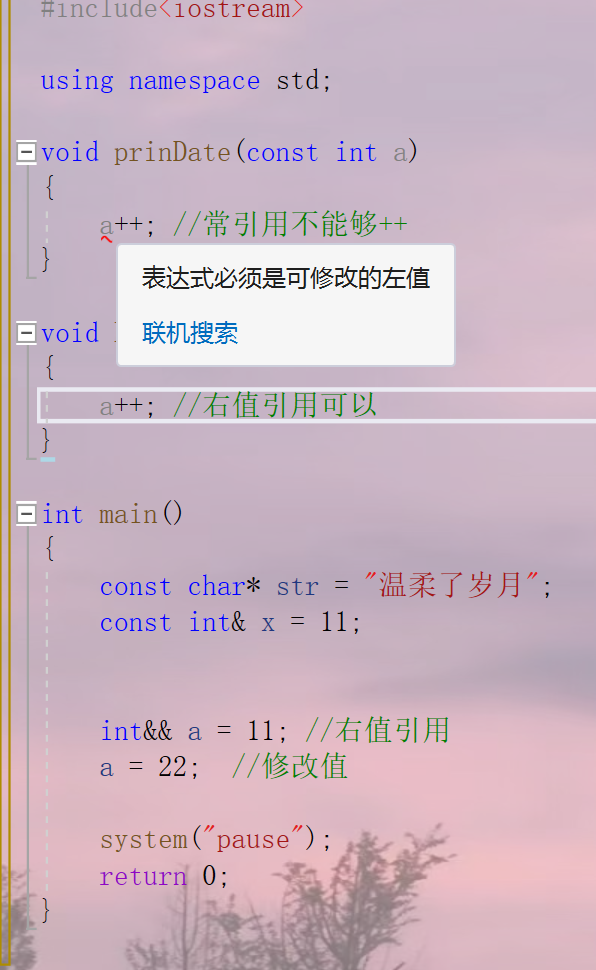
move()函数的应用
这里需要注意的是右值引用只能传入左值,不然就会出现如图所示的报错
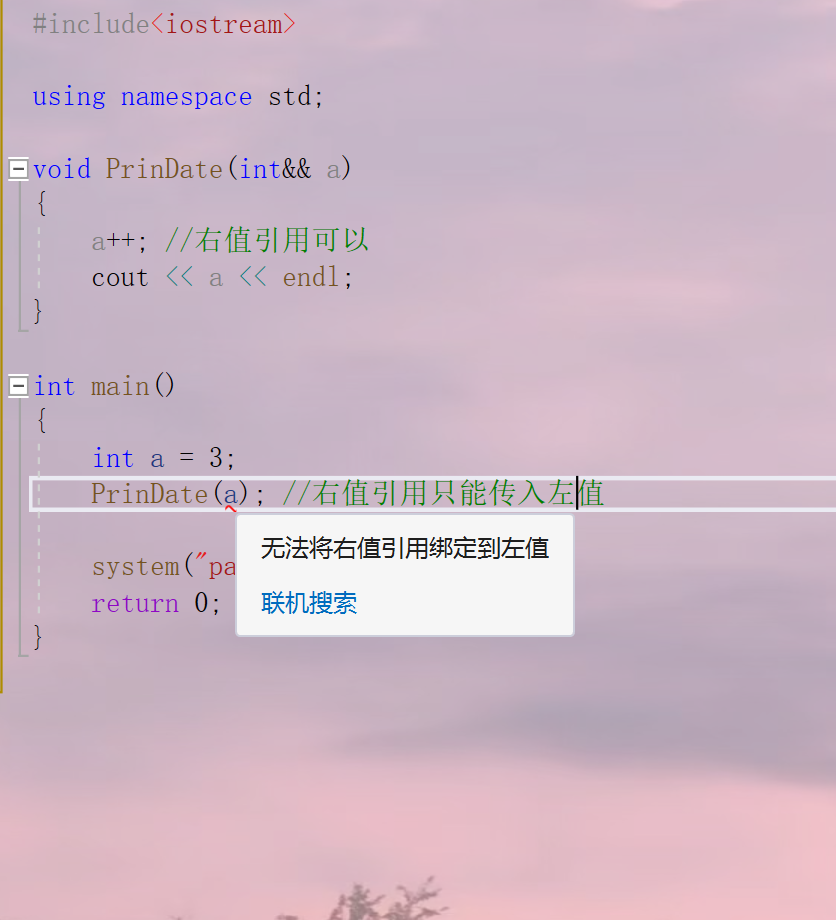
这里就可以通过move()函数,将右值转化为左值
#include<iostream>using namespace std;void PrinDate(int&& a)
{a++; //右值引用可以cout << a << endl;
}int main()
{int a = 3;PrinDate(move(a)); //右值引用只能传入左值,通过move()函数,将右值转化为左值system("pause");return 0;
}
#include<iostream>using namespace std;int main()
{int date = 100;int&& b = move(date);system("pause");return 0;
}
引用小结
引用其实就是起别名的用法,
左值引用,对左边的起别名,传入右值
右值引用,对右边的起别名,传入左值
